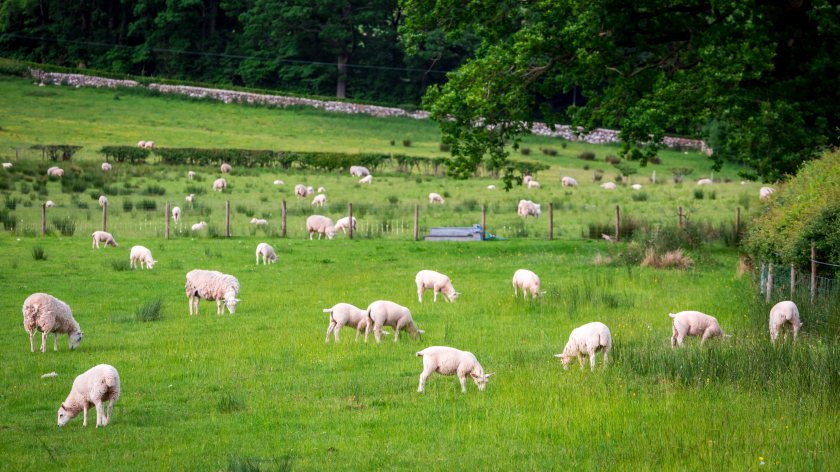
Farmers are being advised not to panic over suspected cases of Haemonchus contortus — also known as Barber’s Pole worm — as interest in the blood-sucking parasite increases across the UK.
Recent reports suggest the parasite may be spreading further north than in previous years, with warmer winters and drier, earlier springs possibly aiding its survival and activity on pasture.
However, the precise reasons behind the apparent uptick in cases remain unclear.
The Sustainable Control of Parasites in Sheep (SCOPS) group is encouraging a test-first, evidence-led approach, emphasising the importance of accurate diagnosis.
Responsible treatment is also needed in managing potential cases of haemonchosis — the disease caused by Haemonchus infections.
Although relatively rare in the UK, outbreaks of this parasitic disease can have devastating effects on sheep flocks.
Adult Haemonchus contortus worms – or even those nearing maturity – are capable of extracting significant amounts of blood from infected sheep.
Alarmingly, just 500 worms can cause clinical illness, with each female worm capable of laying 5,000 to 15,000 eggs daily.
“While Haemonchus can cause serious issues in flocks, it’s important that you do not panic,” said Nerys Wright, SCOPS technical adviser.
“We’re seeing more interest and investigation into this parasite, which is positive, but we must avoid jumping to conclusions or reverting to blanket treatments especially in adult ewes that could undermine responsible and sustainable parasite control.”
SCOPS also stressed the importance of thoughtful product selection: “We have limited resistance data for Haemonchus in the UK, so using newer or narrow-spectrum actives without confirmed need could lead to problems in the future," Ms Wright said.
"Treatment decisions should be based on diagnostics and tailored to the farm’s history of product use, as well as other parasite burdens and treatments.”
For instance, SCOPS advises that farms regularly using Closantel-based products for fluke may want to consider alternative wormers to preserve effectiveness.
The body also reminds sheep farmers that pasture conditions — particularly in dry spells — can significantly affect parasite risks.
Regular monitoring, targeted treatments, and strong quarantine protocols remain essential tools for managing Haemonchus and other internal parasites effectively.
What is Haemonchus contortus?
• A roundworm found in sheep, known for its blood-sucking behaviour.
• Unlike other gastrointestinal worms, it does not typically cause diarrhoea.
• Lives in the stomach and can cause anaemia, ‘bottle jaw’ (swelling under the jaw), lethargy, weight loss, and in severe cases, sudden death.
• Its eggs may appear in faecal egg counts (FEC), but this alone does not confirm active disease (haemonchosis).
